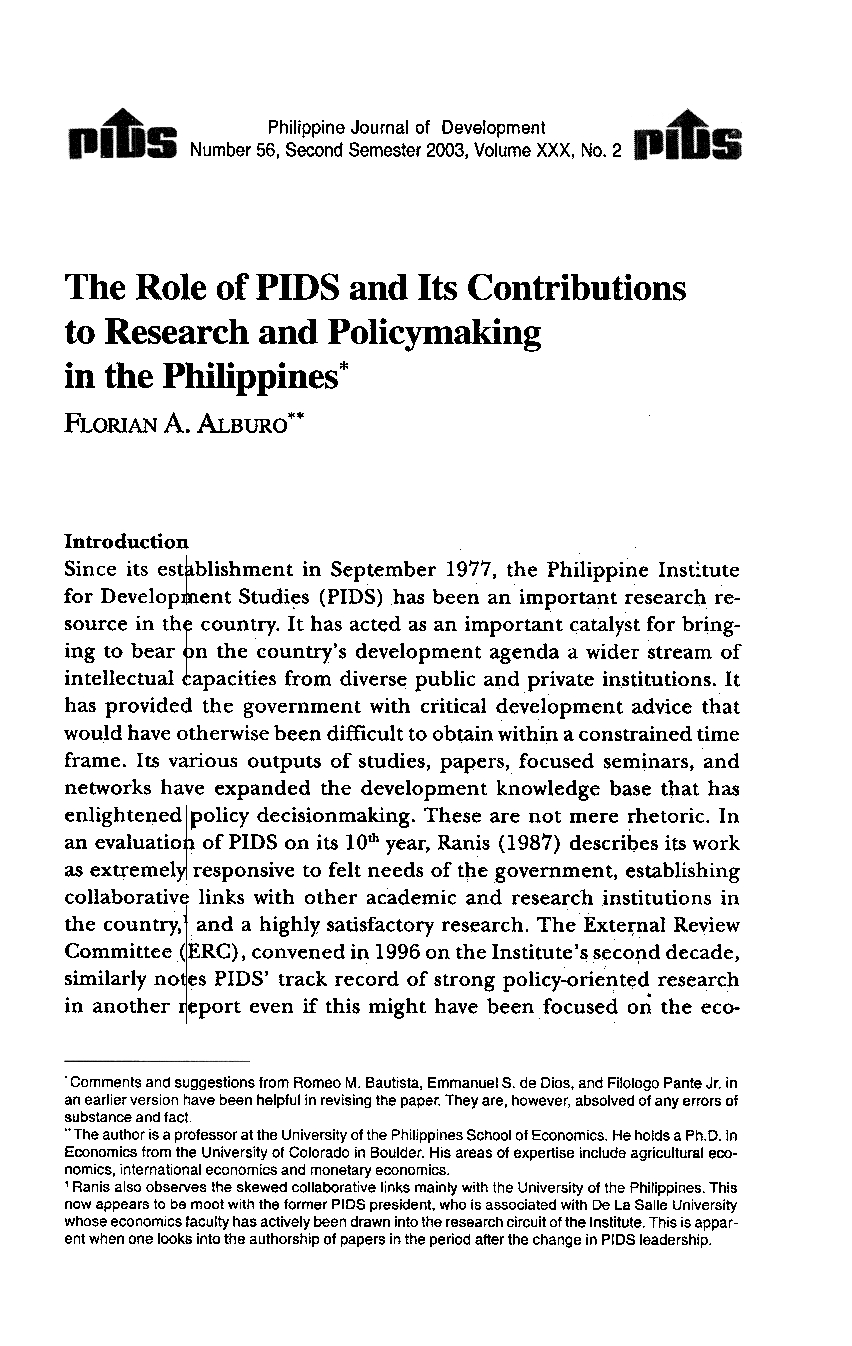Abstract
This issue presents critical discussions on key economic and policy challenges facing the Philippines. It examines the establishment of an independent revenue authority, a reform implemented in many countries to curb inefficiencies, corruption, and political interference in tax administration. The analysis provides valuable insights into the ongoing debate on replacing the Bureau of Internal Revenue. A comparative study on population and poverty assesses trends in the Philippines and Thailand over four decades. It explores the theoretical and empirical links between population growth and poverty, emphasizing economic growth and fertility management as essential strategies for reducing poverty and inequality, particularly among the poor. Another article investigates the relationship between monetary policy and economic growth in South Korea, the Philippines, and Thailand. Using short-term interest rates as an indicator, the study highlights the varying impacts of tighter monetary policies on investment and consumption, as well as their long-term effects on private borrowing and economic recovery. Finally, an unconventional analysis of economic transition explores the role of human consciousness, knowledge, and institutions in shaping economies.
Articles
SHARE
